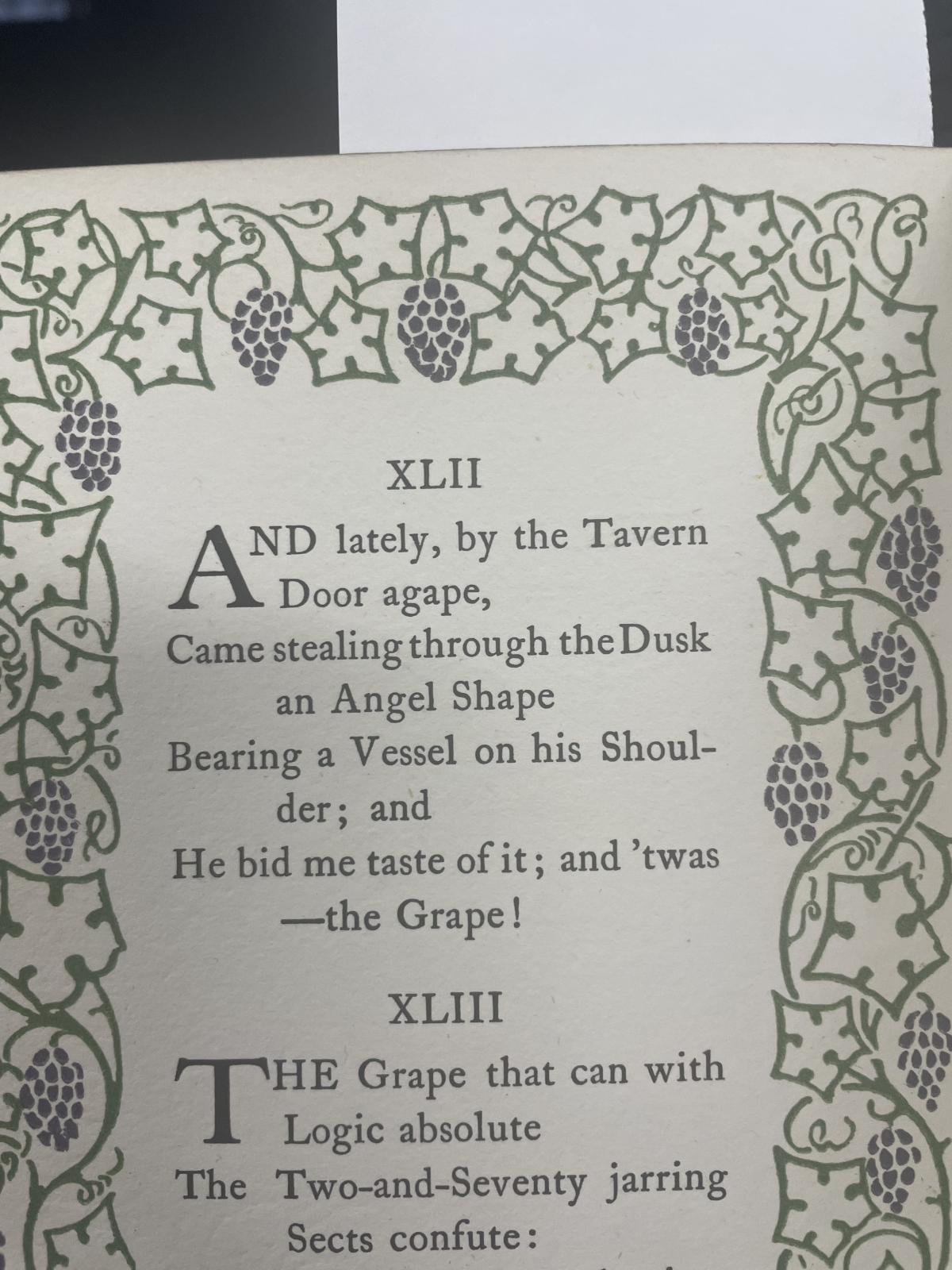Frank Brangwyn’s illustration of a man carrying a pot on his shoulder correlates with stanza XLII to emphasize the importance of community and worldly pleasures discussed in Rubáiyát of Omar Khayyám. Similar to all editions, this version of the poem discusses the value found in enjoying worldly pleasures because of the uncertainty regarding the afterlife. Stanza XLII says: “And lately, by the Tavern Door agape,/Came stealing through the Dusk an Angel Shape/Bearing a Vessel on his Shoulder; and/He bid me taste of it; and ‘twas - the Grape!”
The painting depicts a younger man carrying a pot on his shoulder. He appears younger because he is fairly thin but strong and is walking without a shirt on. This man is walking down an alleyway with other people around. There are a couple of people walking behind him and another sitting on the ground. The color palette is fairly dark, with earthy colors. This creates a very comfortable atmosphere because someone could find all of the colors in nature, making it feel more familiar. The man carrying the pot is the most well-lit of the people in the painting, which shows that he is the main subject of the painting.
Beginning to dissect the stanza, this stanza includes an Earth-specific location and a heavenly figure coming together. The location is a tavern, which is somewhere that people gather and socialize about their lives. This is somewhere that people act less proper and less like they would in a religious setting. The tavern door is also described as being open, meaning that anyone can walk in at any time. The openness of the place emphasizes the common theme within the poem of community and the importance of enjoying time with others. The location makes it interesting that someone entering would be considered an “Angel” because they are not typically associated with things like drinking for pleasure in rowdy places. Interestingly, the Brangwyn image portrays this angel as a man rather than a divine figure. This also ties into the poem’s theme of the value in the living world rather than emphasizing acting in certain ways in your life in hopes of a better afterlife. By having a man stand in as the angel, it can be interpreted that we should enjoy our lives to the fullest because there are always angels/wonderful people around us. The word “bearing” at the beginning of the third line of the stanza is a word that I associate with gift-giving. Reading the stanza with this in mind, it would mean that the vessel of wine that the man is bringing is intentionally a gift. This is further proven by the following line, where the man carrying the vessel gives the speaker of the poem a taste of the wine. Fitzgerald in translating or Khayyám in writing could have chosen a number of words in this sentence but chose “bid” which is defined as ordering someone to do something. Rather than charging for a taste of wine or reluctantly sharing, the man with wine is insisting that the speaker of the poem trying a taste. This insisting ties back into community and the importance of spending time with the people around you.
This stanza and image together portray many of the themes of the poem in just four lines and one small painting. Without our community, gathering places, and the unexpected angels around us, many of life’s greatest pleasures would vanish.


